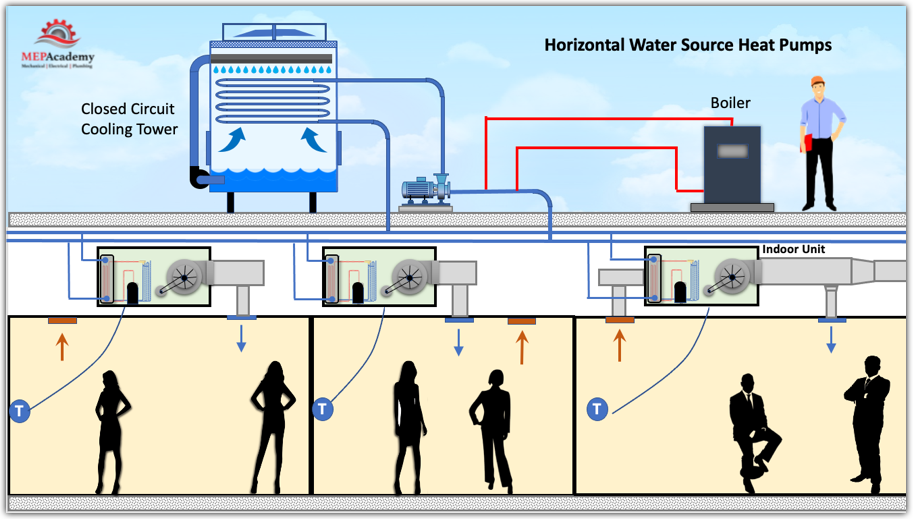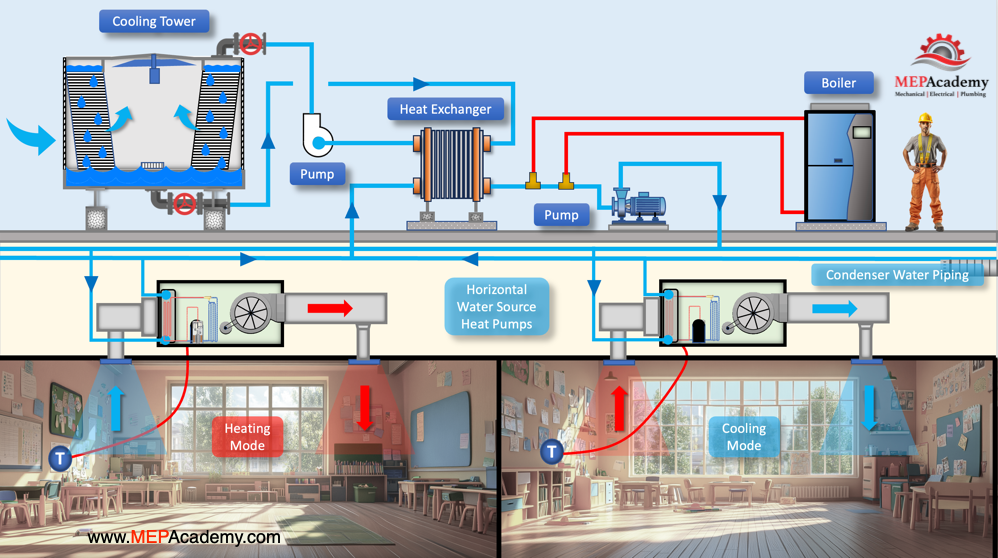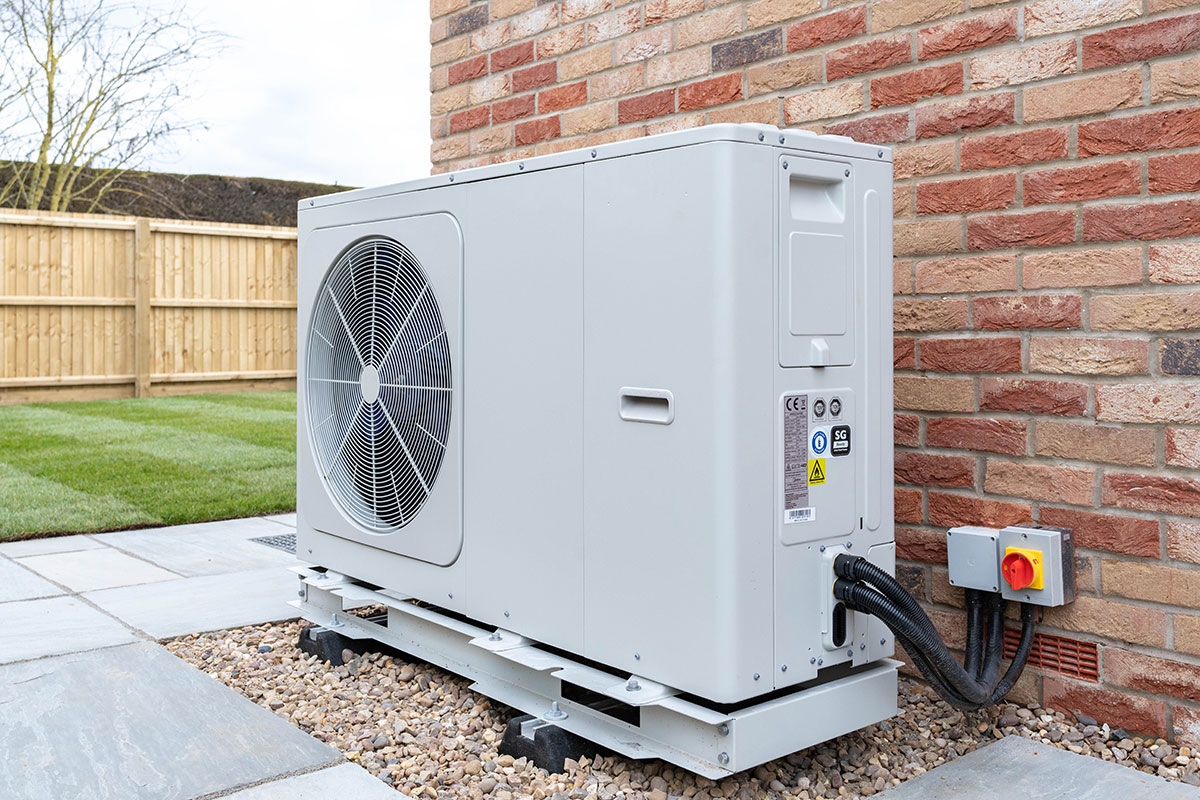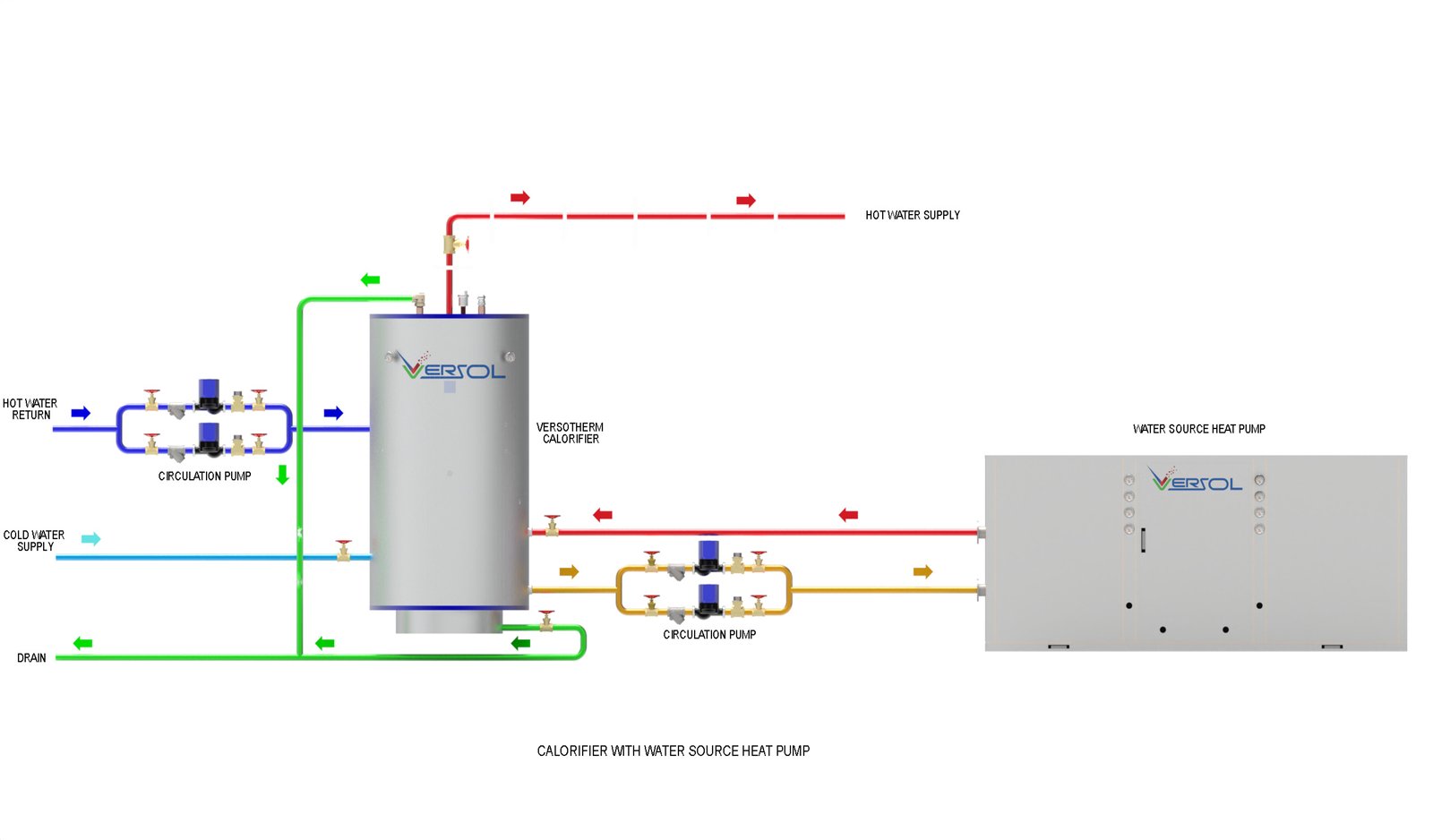Water Source Heat Pump Installation Cost

Frequently Asked Questions About Water Source Heat Pump Installation Cost
Considering a water source heat pump (WSHP) for your home or commercial building? Understanding the costs involved is crucial. This FAQ answers common questions to help you budget and plan your installation.
Q: What factors primarily influence the overall cost of a water source heat pump installation?
The total cost of installing a water source heat pump system is affected by several key factors. Keeping these in mind will help you understand the quotes you receive and make informed decisions:
- Size and Number of Units: Larger spaces require more powerful and/or multiple units, naturally increasing the cost. This includes the BTUs (British Thermal Units) needed for heating and cooling. More zones will also increase the number of WSHPs needed.
- Type of System: Whether you are considering an open-loop, closed-loop, or geothermal system will significantly impact costs. Geothermal systems tend to be the most expensive due to the drilling required.
- Complexity of Ductwork: Existing ductwork can lower costs if it's compatible. New or modified ductwork adds to the overall expense, especially in older buildings.
- Condition of Existing Plumbing and Electrical: Upgrading your plumbing and electrical systems to handle the new heat pump can add unexpected costs. Older buildings often require these upgrades.
- Labor Costs: Installation labor varies greatly depending on your location and the experience of the contractor. Getting multiple quotes is essential.
- Permits and Inspections: Local building codes require permits and inspections, which add to the overall cost.
- Accessibility: Difficult access to the installation location (e.g., tight crawl spaces, high roofs) can increase labor costs.
- Brand and Model: Higher-efficiency and more reputable brands usually come with a higher price tag, but can offer long-term savings through reduced energy consumption.
Q: Can you provide a general cost range for installing a water source heat pump in a typical residential home?
Providing a precise cost is difficult without knowing specific details about your home and system requirements. However, here's a general range to give you an idea:
For a typical residential home (e.g., 1,500-2,500 square feet), a water source heat pump installation can range from $3,000 to $10,000 per unit. This includes the cost of the heat pump itself, basic installation labor, and minimal ductwork modifications. Keep in mind that this is a broad estimate, and the final cost can vary significantly based on the factors mentioned earlier.
Here's a slightly more detailed breakdown:
- Unit Cost: $1,500 - $4,000 (depending on size and efficiency)
- Basic Installation: $1,500 - $6,000 (depending on complexity and labor rates)
- Geothermal (if applicable): Additional $10,000 - $30,000+ (due to drilling and ground loop installation)
It's crucial to get quotes from multiple qualified contractors to get a more accurate estimate for your specific situation. These estimates should clearly outline all associated costs.
Q: How does the cost of a water source heat pump compare to other types of heating and cooling systems, like traditional furnaces or air conditioners?
Comparing the cost of a water source heat pump to other systems involves looking at both upfront installation costs and long-term operating expenses:
- Upfront Costs: Generally, a water source heat pump installation can be more expensive upfront than a traditional furnace and air conditioner setup, especially if it involves geothermal components. However, basic WSHP systems can be comparable to high-end, high-efficiency traditional systems.
- Operating Costs: Water source heat pumps are generally more energy-efficient than traditional systems. This translates to lower monthly utility bills, which can offset the higher initial investment over time.
- Lifespan: WSHPs, especially geothermal systems, often have a longer lifespan than traditional systems, potentially reducing replacement costs in the long run.
- Maintenance Costs: Maintenance costs for a WSHP can vary. Some components might require specialized servicing, but overall, routine maintenance is generally similar to other HVAC systems.
To make a fair comparison, consider the following:
- Energy Efficiency (SEER/HSPF): Compare the Seasonal Energy Efficiency Ratio (SEER) for cooling and the Heating Season Performance Factor (HSPF) for heating. Higher numbers indicate greater efficiency.
- Estimated Annual Operating Costs: Your contractor should be able to provide estimates of annual operating costs based on your local energy rates and climate.
- Long-Term Savings: Factor in the potential for long-term energy savings when evaluating the overall cost.
In the long run, the higher efficiency of a water source heat pump can often lead to significant savings, making it a cost-effective choice despite the potentially higher initial investment.
Q: Are there any rebates, tax credits, or other incentives available to help offset the cost of installing a water source heat pump?
Yes! Numerous incentives are available to help reduce the cost of installing a water source heat pump. These can significantly impact the overall affordability of the system.
- Federal Tax Credits: The U.S. federal government often offers tax credits for installing energy-efficient HVAC systems, including water source heat pumps. These credits can be substantial, often covering a percentage of the total installation cost. Consult the IRS website or a tax professional for the most up-to-date information.
- State and Local Rebates: Many states and local municipalities offer rebates for energy-efficient upgrades. These rebates can vary depending on the specific system and your location. Check with your local utility company or energy office for available programs.
- Utility Company Incentives: Your local utility company may offer rebates or financing options for installing energy-efficient equipment. Contact them directly to inquire about available incentives.
- Database of State Incentives for Renewables & Efficiency (DSIRE): DSIRE is a comprehensive online resource that provides information on state, local, federal, and utility incentives for renewable energy and energy efficiency.
It's crucial to research and apply for these incentives to maximize your savings. Your HVAC contractor may also be able to assist you in identifying and applying for relevant programs.
Q: How can I ensure I get the best possible price for my water source heat pump installation without sacrificing quality?
Getting the best price without compromising on quality requires careful planning and research:
- Get Multiple Quotes: Obtain at least three quotes from different licensed and experienced HVAC contractors. Compare the quotes carefully, paying attention to the details of what's included (e.g., equipment, labor, permits).
- Check Contractor Credentials and References: Verify that the contractors are licensed, insured, and have positive reviews and references. Contact previous clients to inquire about their experience.
- Ask About Energy Efficiency: Discuss the energy efficiency ratings (SEER/HSPF) of different models and ask for estimates of annual operating costs. Choose a model that balances upfront cost with long-term energy savings.
- Negotiate: Don't be afraid to negotiate the price. Some contractors may be willing to lower their price to secure your business.
- Consider Off-Season Installation: Demand for HVAC services is often lower during the off-season (e.g., spring or fall). You may be able to get a better price by scheduling your installation during these times.
- Read the Fine Print: Carefully review the contract before signing. Make sure all the details are clear, including the scope of work, payment terms, and warranty information.
- Don't Automatically Choose the Lowest Bid: While price is important, don't automatically choose the lowest bid without considering the contractor's experience, reputation, and the quality of the equipment they are offering. A slightly higher price may be worth it for a more reliable and professional installation.
By following these tips, you can increase your chances of getting a fair price for a high-quality water source heat pump installation.
Q: What are some potential hidden costs or unexpected expenses I should be aware of when planning a water source heat pump installation?
While a detailed quote should cover most costs, it's wise to anticipate potential hidden expenses:
- Ductwork Modifications or Replacement: Existing ductwork may not be compatible with the new heat pump, requiring modifications or even complete replacement. This can be a significant expense, especially in older homes.
- Electrical Upgrades: The new heat pump may require a dedicated electrical circuit or an upgrade to your electrical panel.
- Plumbing Modifications: If you're connecting to an existing water source (e.g., well), you may need to upgrade the plumbing to handle the increased flow rate.
- Asbestos Abatement: If your home was built before the 1980s, there's a chance that asbestos may be present in the ductwork or insulation. Asbestos abatement can be expensive and time-consuming.
- Permit Fees: Permit fees can vary depending on your location. Make sure your contractor includes these fees in their quote.
- Unexpected Repairs: During the installation process, unforeseen problems may arise, such as hidden water damage or structural issues. These can lead to additional repair costs.
- Landscaping Restoration (Geothermal): If you're installing a geothermal system, the drilling process can disrupt your landscaping. Budget for the cost of restoring your lawn and gardens.
- Increased Energy Consumption During Startup: Newly installed heat pumps may experience slightly increased energy consumption during the initial startup and calibration phase. This should normalize after a short period, but it's good to be aware of it.
- Cost of Water Testing: For open-loop systems using well water, regular water testing is essential to ensure water quality and prevent damage to the heat pump. Factor in the ongoing cost of these tests.
To minimize the risk of unexpected expenses:
- Get a Thorough Site Assessment: Have the contractor perform a thorough site assessment to identify any potential problems.
- Include a Contingency Fund: Set aside a contingency fund to cover any unexpected expenses that may arise. A good rule of thumb is to allocate 5-10% of the total project cost.
- Communicate Openly with Your Contractor: Maintain open communication with your contractor throughout the installation process. Ask questions and address any concerns promptly.
By being aware of these potential hidden costs and taking proactive steps to mitigate them, you can better manage your budget and avoid unpleasant surprises.










